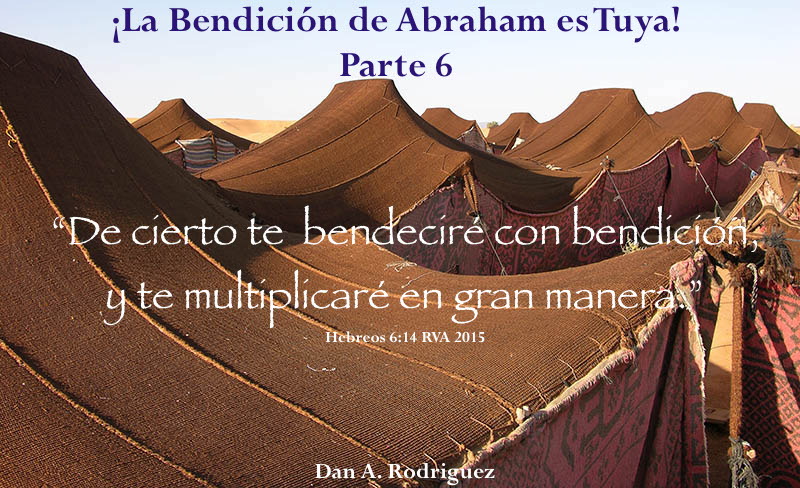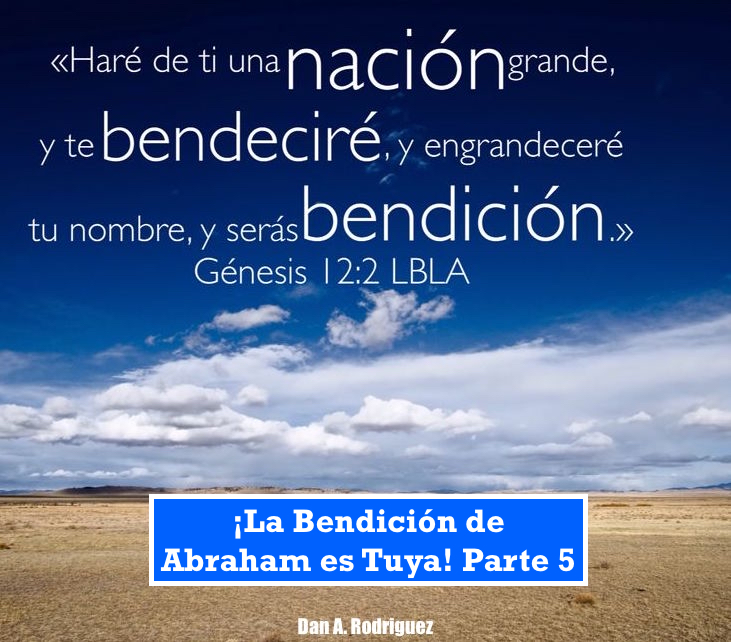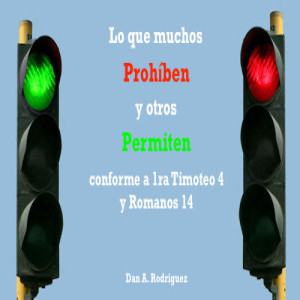Episodes
Episodes



Friday Oct 27, 2017
Friday Oct 27, 2017
“…When the Son of Man comes, will he find faith on earth?” (Luke 18:8b NET)
Evidently, real, vibrant, Bible faith will be in comparatively short supply when Jesus returns. Will we have the genuine kind of faith He is looking for? (See 1st Peter 1:7 in the NKJV.) I pray that we do. That is the purpose of these articles, to examine our faith as Paul stated in 2nd Corinthians 13:5.
I now feel compelled instead to write to encourage you to contend earnestly for the faith that was once for all entrusted to the saints (Jude 1:3 NET).
We are contending earnestly for the faith once for all entrusted to the saints in these articles!
Grandma, grandpa, your mother or father, or your denomination probably never taught faith quite like you will read in these articles.
“Well, I was taught that faith is just believing God, and that is all there is to it.” Have you ever heard that?
Many believe firmly that their particular Church doctrinal statements are their faith. Then, you have a multitude of people that ask, “What is your faith? To what faith do you subscribe?” Of course, they are asking you about the particular Christian group you associate with or belong to.
Others take faith into the realms of believing and trusting, full persuasion of God’s promises, speaking the Word, or believing (trusting) that you receive your answer to prayer. There are sound Biblical truths to be studied in those areas, but faith is much broader in scope in Paul’s epistles and the rest of the New Testament than these definitions alone.
Did you know that obedience is an intimate part of faith? How often do you hear from today’s pulpits that obedience is an integral part of faith? Paul connected them forever.
Through Him we have received grace and our apostleship to bring about the obedience of faith among all the Gentiles on behalf of his name… and through the prophetic scriptures has been made known to all the nations, according to the command of the eternal God, to bring about the obedience of faith (Romans 1:5, 16:26 NET).
Did you know that there are teachers today that reject the idea that obedience to God and His Word are essential parts of your faith in Christ? Can they read? Paul began and finished his great epistle to the Romans with the principle of obedience of faith. Obeying the Lord is not an option in Scripture in the Old and New Testaments, that is, IF we want God and the Lord Jesus by His Spirit working in our lives (John 14:21-26; 1 John 2:3-6 NET).
These articles will tear down some traditional interpretations, but they should not be construed as a denial of other areas of faith not covered in them. Faith is a BIG subject! For that very reason, I am adding audio messages to these articles that give you some other sides of Biblical faith. I hope you listened to the audio message, “Only Believe” with Part 1 of this series of articles. I suggest you listen to all the 37 audio messages in the series, “Removing Doubt from the Heart.” Only Believe was #28 from this series.
Bible faith as Paul understood it, was solidly based on the Old Testament or the Holy Scriptures (2 Timothy 3:14-17). He also based his understanding of faith on the words and example of Jesus in the Gospels. Jesus was the Word of God made flesh, so He and the written Word must agree (John 1:1-3, 14). That must be included in any assessment of Paul’s view of faith.
As we saw in the first article, Paul used the Scripture profusely in his epistles, either by direct quotations or by allusions. By allusions, I mean that he was constantly hinting at Scripture even though he was not necessarily quoting verses or naming the books where they were found.
Here is an oft-quoted verse used to establish Paul’s teaching on faith. There is no guessing game here!
For in it the righteousness of God is revealed from faith to faith; as it is written, “The just shall live by faith.” (Romans 1:17 NKJV)
“The just shall live by faith” is a quotation of the second part of Habakkuk 2:4.[1]
Where did Paul’s definition of faith come from?
Was it from some special revelation only given to him? Paul’s definition of faith was confirmed by his choice of a proof text from the Old Testament, written almost seven centuries before he wrote Romans 1:17.
Paul almost exclusively used the Septuagint (LXX) Greek when quoting the Old Testament. The Septuagint was an ancient Jewish translation of the Old Testament from Hebrew into Greek. The language was analyzed and the conclusion is that the Pentateuch was translated near the middle of the 3rd century B.C., and the rest of the Old Testament was translated in the 2nd century B. C.[2] The Greek of the New Testament reflects the Septuagint in hundreds of places.[3]
Gustav A. Deissmann (1866–1937), the renowned German Protestant theologian, said it like this:
"A single hour lovingly devoted to the text of the Septuagint will further our exegetical knowledge of the Pauline Epistles more than a whole day spent over a commentary… Every reader of the Septuagint who knows his Greek (New) Testament will after a few days’ study come to see with astonishment what hundreds of threads there are uniting the Old and the New."[4]
Follow me in this. I am not splitting hairs here. It’s information every single believer should have.
Paul quoted Habakkuk 2:4 in Romans 1:17 and Galatians 3:11 by using the Greek word for faith (pistis) as it came to him from the Septuagint, but that was not its origin. The Hebrew original text was standing behind the Greek Septuagint and Paul’s usage. Hebrew has to be the place to look for the original meaning. That makes perfect sense to me, yet many prefer to see only the Greek, and do their best to dismiss the Hebrew standing behind it. That, my friends, is a huge lack in judgment!
Going back to the original Hebrew that stands behind the Greek is not only necessary, but it is doing an honest word study, whether you are a scholar, preacher, teacher, or a student of the Word. If one refuses to admit or rejects the Hebrew that stands behind all Greek Septuagint quotations (and word usage) in the New Testament, then one subscribes to a dishonest form of Biblical study. I don’t think any of us want to be accused of dishonesty.
What is the Hebrew word translated faith in Habakkuk 2:4, quoted by Paul in Romans 1:17 and in Galatians 3:11?
Brown, Driver, Briggs Hebrew and English Lexicon of the Old Testament (BDB) is relevant today, even though newer dictionaries are in circulation. The Hebrew word that is generally translated faith in Habakkuk 2:4 is emunah, and BDB states that it means: firmness, fidelity, steadfastness, and steadiness. (See H530, 53b.) Those definitions are the ones found in the summarized version of the BDB on the Bible software on my cell phone. When looking at the definition of emunah (H530, 53b) in the full BDB, [5] we see that faithfulness and trust are added to the definition.
On page 53, column b, under entry #530, around the center of the page, we come to the BDB translation of Habakkuk 2:4: “a righteous man by his faithfulness liveth.” Pay close attention to the code right after the translation: (>faith LUTH AV RV). The list of abbreviations at the front of the dictionary is the place to decode it. The parenthesis means that the preceding translation of emunah as faithfulness is preferred to how Luther, the Authorized KJV, and the Revised Version translated it as faith! Luther, the KJV and the AV (among others) did not translate emunah. They injected into Habakkuk 2:4 their translation from the Greek New Testament back into the Old. That is backwards!
I am suggesting that we do the exact opposite, take the Hebrew definitions and inject them into the New!
Faithfulness is not “by faith alone” or “believing alone”. Not even close! Oops! That is contrary to centuries of protestant theology that began with Luther emphasizing “by faith alone”, one perpetuated by the KJV, RV, and the majority of versions.
Look back at these definitions of emunah. The words faith and believe are completely lacking in the Hebrew definition. “By faith alone” is missing in the BDB translation of Habakkuk 2:4.
Look at the NKJV translation of Habakkuk 2:4, one basically in agreement with the KJV and RV:
“Behold the proud, His soul is not upright in him; but the just shall live by his faith.” (NKJV)
Translations like the NKJV are simply bringing into the Hebrew original text a translation of the verse according to the Greek New Testament that came from the Septuagint. They paid NO attention to the original Hebrew text!
Now, watch what happens when you don’t take the Greek as the final word or inject it back into the Hebrew text of the Old Testament. The Hebrew original text of Habakkuk 2:4 gives us a completely different picture.
“Look, the one whose desires are not upright will faint from exhaustion, but the person of integrity will live because of his faithfulness” (NET).
A few other translations have the better word faithfulness: God’s Word, Good News Translation, Lexham English Bible, New International Revised Version, NIV, New Living Testament, Voice. Young’s Literal Translation has steadfastness. The Common English Bible has live honestly. The Complete Jewish Bible has trusting faithfulness. The Message has loyal and steady believing. All of these are much better than the word faith.
The New English Translation in Habakkuk 2:4, under note 15 says about the traditional translation of emunah as faith that it “nowhere else refers to ‘belief’ as such.” “Honesty, integrity, reliability, faithfulness” define emunah when used in reference to human conduct and character, as in this verse.[6]
Belief, faith, and believing are not even in the equation!
Here’s where it really gets messy.
Even though the NET gets it right in Habakkuk 2:4, they ignore the Hebrew background in Romans 1:17. They honestly believe it is the best scholarship to translate the text from the Greek and let it stay that way without elucidating the Hebrew behind it. They missed the point of Habakkuk 2:4 in Paul’s reference.
Don’t misunderstand me. Translators are working with the texts in front of them to the best of their abilities. They translate a word, generally, looking for a word or words that convey the meaning clearly into their target language. I believe translators are doing an excellent job, as far as word-for-word translations go, especially in the newer translations like the New English Translation and others. The issue I am referring to is in the realm of looking at the original language behind the Greek when Old Testament verses and allusions are found in the New Testament.
When the original emunah is translated from the Greek pistis as faith in the New Testament, without further explanation, it is misleading and woefully incomplete. It has to be elucidated based on Habakkuk 2:4, and other Old Testament verses we will get to. That is especially true if the verses are quoted in the New Testament!
Translators could include a footnote next to the word faith (and many others) in the New Testament. There should be a fuller explanation and definition based on the Hebrew original, but these are nowhere to be found! It’s better to translate faith (and believe) as a phrase based on the Hebrew definition. My God! That would have enhanced richly our faith in Christ in so many ways, and kept the church out of many strange and unfruitful interpretations.
If I had known that Bible faith was, and is, correctly defined by faithfulness, steadfastness, loyalty, obedience, and trust, it would have made a huge difference in so many ways. Fidelity, firmness, and steadiness are not primarily (nor secondarily or even thirdly) your beliefs, but your Covenant relationship-fellowship with Him, your lifestyle, and actions according to His Word. Glory to God!
I learned some powerful lessons in the realm of faith from 1974 until 1986 (and I am still learning), such as trusting in the promises of God, speaking to the mountain to be removed, speaking of things that are not as though they were, getting your words to agree with God's Word, and so on (Romans 4:17-22; Mark 11:22-26).
When I first learned some of the things I am sharing in these articles, sadly, I started to discard many of the things I learned earlier. I did not realize that what I was learning was not to take away from my faith, but to tweak and adjust me in it. God’s purpose was to take me further into the realm of faith than I had ever been. I threw out the baby with the bathwater! That was not a good idea!
Now in 2017, I can look back, grin, and laugh at how ignorant I was, but it was no laughing matter then. It was havoc and sheer hell! That is one story that I will spare you from. I stepped away from the Lord and His Word over my errors (and sins) from 1989-1999, but (PTL) I came back to Him through repentance and renewal in April of 1999.
Looking back, since my initial commitment to Jesus in early 1974 (under the big tent of R. W. Schambach, Tampa Florida), I can truthfully say, that I am finally getting a clue! As I continue to study, finally, I am receiving from the Lord some understanding on how all these areas of faith complement each other and work together. They are not contrary to one another.
I trust that these messages will take you much further in Him, and in faith, than I have ever been. I also trust that it will happen for you in a whole lot less time.
Be mightily blessed!
NOTES:
[1] Galatians 3:11 and Hebrews 10:38 also repeat, “the just shall live by faith.”
[2] https://www.britannica.com/topic/Septuagint
[3] An interesting question is, which Hebrew text stands behind the Septuagint (LXX)? According to the evidence of the Dead Scrolls, there were a few Hebrew manuscript traditions. One agreed more with the MT, one was like the LXX, and another like the Samaritan text of the Pentateuch. Then, there was the one that was different than those, like the one reflected in the great Isaiah Scroll, and there were more. This is important because scholars believed, until the Dead Sea Scrolls were found and examined, that the LXX had many Christian additions. The DSS proved that assumption wrong because they were pre-Christian! They found clear evidence of a textual tradition similar to the Septuagint. See Ostling, Richard N., “Dead Sea Scrolls” yield “major questions” in Old Testament understanding, (University of Notre Dame; https://news.nd.edu/news/dead-sea-scrolls-yield-major-questions-in-old-testament-understanding/, accessed 10-26-17); Tov, Emanuel; Searching for the “Original” Bible, (https://members.bib-arch.org/biblical-archaeology-review/40/4/10, accessed 10-26-17), and Tov, Emanuel. Textual Criticism of the Hebrew Bible. 2nd Rev. Ed. Fortress Press: Minneapolis, 2001, 114-117; where he states that Qumran-specific texts were 20%, Proto-Masoretic texts – 35%, Proto-Samaritan texts – 5%, Proto-Septuagint texts – 5%, Non-Aligned texts – 35%.
[4] Deissmann, The Philology of the Greek Bible, its Present and Future, (1908, Hodder and Stoughton, London), pp. 12, 13.
[5] The BDB Hebrew and English Lexicon, (Hendickson Publishers, Massachussetts, 1996) coded to Strong’s numbers. Reprinted from the 1906 ed.
[6] The Lumina NET at Bible.org, translation note 15 in Habakkuk 2:4, https://lumina.bible.org/bible/Habakkuk+2 (accessed October 17, 2017)
________________
The audio message that follows is #29 from the series, “Removing Doubt from the Heart.” The name of the message is: Light Burden vs. the Devil's Heavy Weights. Messages 1-28 are already published on our website.



Sunday Oct 15, 2017
Sunday Oct 15, 2017
On our website, you will find teaching on different areas of faith. The audio podcast series, “Removing Doubt from the Heart,” addresses numerous vital aspects of faith. These articles address another part to faith, one that is by no means less important. Why are we doing this? We are contending earnestly for the faith!
Beloved, while I was very diligent to write to you concerning our common salvation, I found it necessary to write to you exhorting you to contend earnestly for the faith which was once for all delivered to the saints. For certain men have crept in unnoticed, who long ago were marked out for this condemnation, ungodly men, who turn the grace of our God into lewdness and deny the only Lord God and our Lord Jesus Christ (Jude 1:3-4 NET).
There was a faith that was once for all delivered to the saints, and in these articles, we are contending earnestly for it. Do you know how faith was viewed in apostolic times? You may think you know, but allow this series to challenge you, and possibly, to bring you additional light to whatever concept of faith you may have.
Examine yourselves as to whether you are in the faith. Test yourselves. Do you not know yourselves, that Jesus Christ is in you?—unless indeed you are disqualified (2 Corinthians 13:5 NKJV).
These articles have to do with examining and testing yourself to see whether the faith you and me have is genuine.
…That the genuineness of your faith, being much more precious than gold that perishes, though it is tested by fire, may be found to praise, honor, and glory at the revelation of Jesus Christ… (1Peter 1:7 NKJV)
We need some solid information properly drawn from the Scripture to know about this genuine faith in order to function and live by it.
For the righteousness of God is revealed in the gospel from faith to faith, just as it is written, “The righteous by faith will live.” (Romans 1:17 NET)
Real Bible faith is not commonplace. Actually, before the coming of the Lord, it may be in comparatively short supply.
Nevertheless, when the Son of Man comes, will he find faith on earth? (Luke 18:8 NET)
What a question! It's there as a challenge to you and me in Christ. I want to be among those that Jesus says when He comes, “I found faith in him.” Don't you?
I am doing my part earnestly so that the message of faith gets out to the Body of Christ. Are you doing it too? You can help spread the word by forwarding these articles and the audios on the subject of faith on our website. We need this message of faith today because we are closer to His coming!
The key that unlocks Paul’s own views and interpretations
Here is how we will begin to study this side of the subject of faith. We begin with a question.
How did the great apostle Paul (and others) use the word faith?
How can we be 100% positive as to the apostolic interpretation of that word 2000 years ago? Wouldn’t that be the most important consideration when reading the epistles? We do not want to take our modern idea of the definition of faith and read it back into the New Testament. Yet, that is precisely what is done on many fronts.
The key that unlocks Paul’s own views and interpretations can be found in the many quotations, references, and allusions from the Old Testament in his epistles.
But you must continue in the things which you have learned and been assured of, knowing from whom you have learned them, and that from childhood you have known the Holy Scriptures, which are able to make you wise for salvation through faith which is in Christ Jesus. All Scripture is given by inspiration of God, and is profitable for doctrine, for reproof, for correction, for instruction in righteousness, that the man of God may be complete, thoroughly equipped for every good work (2 Timothy 3:14-17 NKJV).
Paul was not filling up space when he quoted Old Testament Scripture. It was the basis for his teaching. Paul’s doctrine (teaching) was centered on the Old Testament, the Holy and inspired-by-God Scriptures. The New Testament wasn’t yet written in his day. All that existed in his day was the Old Testament.
For some reason, many believe that Paul’s doctrinal position came uniquely via a special revelation unrelated to the Hebrew Old Testament. Paul’s doctrine or teaching was constructed out of that already revealed in Holy Scriptures, according to 2nd Timothy 3:15 and 16. The Hebrew Bible was his foundation even though he wrote in Greek, and quoted from the Greek Septuagint translation of the Old Testament. We will say much more about all that in the next article.
To make it even harder to swallow for those in the grip of modern interpretations, Paul stated that the OLD TESTAMENT Hebrew Bible (The Holy Scriptures) was “able to make you wise for salvation through faith which is in Christ Jesus.” Paul was solidly basing the salvation message he taught through faith in Christ Jesus on the Old Testament Holy Scriptures. What? Paul was preaching Jesus and salvation through faith by using the Old Testament? That alone, throws some traditional thoughts into a tailspin, and we are just getting started!
Paul’s doctrine was rooted and grounded in the Hebrew Holy Scriptures. Yet, some foolishly throw out the Hebrew Holy Scriptures in favor of Paul’s epistles viewed according to new interpretations that have nothing to do with the apostle’s doctrine.
Some even throw out the words of Jesus in the Gospels, and have proclaimed Paul the “savior” of the Gentiles. It is truly disgusting how some deny the words of our Lord today. Not only is it repulsive, it is deeply anti-Christ to reject the words of our Master, Jesus.
If anyone teaches otherwise and does not consent to wholesome words, even the words of our Lord Jesus Christ, and to the doctrine which accords with godliness, he is proud, knowing nothing, but is obsessed with disputes and arguments over words… (1Timothy 6:3, 4 NKJV)
We must consent to the words of Jesus in the Gospels (and Acts and Revelation), and to the doctrine which accords with godliness. [1] Those that reject these are full of pride, they don’t know anything, and they are obsessed with disputes and arguments. Have you come across any people like that? They believe that the words of Jesus and the Old Testament are irrelevant for believers today because they believe His words were contrary to grace and were under the law. Is that teaching anti-Christ and anti-God? Yes it is. It is also anti - the Holy Scriptures.
To present this study properly, a few things must be addressed before we begin a discussion on the subject of faith and believing.
It is vital to understand the immense importance of the Old Testament to New Testament word studies.
According to David H. Stern’s translation, The Jewish New Testament, there are 695 verses of the Old Testament quoted from Matthew to Revelation.[2] Those are direct verse quotations (or parts of verses), but there are many more references and hints to Old Testament passages in the New Testament.
Roger Nicole, in the The Expositor’s Bible Commentary, [3] stated that some of the quotations and references in the New to the Old Testament could be as high as 4,105:
“The New Testament contains an extraordinarily large number of Old Testament quotations. It is difficult to give an accurate figure since the variation in use ranges all the way from a distant allusion to a definite quotation introduced by an explicit formula stating the citation’s source. As a result, the figures given by various authors often reflect a startling discrepancy…. C. H. Toy lists 613 such instances, Wilhelm Dittmar goes as high as 1640, while Eugen Huehn indicates 4105 passages reminiscent of Old Testament Scripture. It can therefore be asserted, without exaggeration that more than 10 per cent of the New Testament text is made up of citations or direct allusions to the Old Testament. The recorded words of Jesus disclose a similar percentage. Certain books like Revelation, Hebrews, Romans are well nigh saturated with Old Testament forms of language, allusions and quotations.”[4]
Did you get that? Certain books like Revelation, Hebrews, and Romans are well nigh saturated with Old Testament forms of language, allusions, and quotations. My question is simple. How could we possibly understand books like Romans, Revelation or Hebrews without looking closely at the Old Testament verses quoted and alluded to in them? If we don’t study the Old Testament, especially the sections or verses quoted in the New, we are left with a huge doctrinal and interpretational void.
Many have made up new interpretations because they have completely ignored the Hebrew Biblical text. So that we are clear, ignoring the original Hebrew of the Old Testament is not a new problem, but one that has dogged the Church relentlessly for centuries. We will tackle that issue on a basic level in these articles.
If so many verses, references, and allusions to the Hebrew Scripture are all over the New Testament, does that make the Old Testament obsolete, or does it grant the Old Testament a place of prominence in the New Testament? Yes, the Old Testament has a highly visible and prominent place in the New Testament. It has a place of honor and respect, and it is indispensible to gain a right doctrinal perspective in the New Testament.
Since Paul quoted profusely from the Old Testament Holy Scriptures, should we pay close attention to these quotations?
Here’s a verse I quoted above to start our study of faith. Paul cites an Old Testament verse as a proof text for what he was teaching.
For in it the righteousness of God is revealed from faith to faith; as it is written, “The just shall live by faith.” (Romans 1:17 NKJV)
Paul quoted a part of Habakkuk 2:4 in the second half of Romans 1:17.[5]
Where was Paul’s definition of faith coming from? Was it from some special revelation only given to him? No! His definition of faith was from the Old Testament, written centuries before he wrote Romans 1:17. If Paul quoted from an Old Testament verse, then he was relying on its definition and message.
More to come!
NOTES:
[1] Doctrine is the same Greek word in 2nd Timothy 3:16 and 1st Timothy 6:3.
[2] Lederer Messianic Publications; 1st edition (September 1, 1989)
[3] Zondervan, Grand Rapids, 1979, Vol. 1, p. 617
[4] Roger Nicole, “New Testament Use of the Old Testament,” Carl F.H. Henry, ed., Revelation and the Bible. Contemporary Evangelical Thought. Grand Rapids: Baker, 1958 / London: The Tyndale Press, 1959. pp.137-151. See also: https://biblicalstudies.org.uk/pdf/rev-henry/9_ot-in-the-nt_nicole.pdf .
[5] Galatians 3:11 and Hebrews 10:38 also repeat, “the just shall live by faith.”
So you hear another audio teaching on "Removing Doubt from the Heart", here is Part 28: "ONLY BELIEVE."



Wednesday Dec 28, 2016
¡La Bendición de Abraham es Tuya! (Parte 6)
Wednesday Dec 28, 2016
Wednesday Dec 28, 2016
Grabamos en el estudio de Hands in Motion Music (Brandon) la Parte 6, la final de la serie “¡La Bendición de Abraham es Tuya!” Enseñamos acerca de la verdad de ser hijos e hijas de Abraham por la fe (Gálatas 3:7, 9, 14, 29) y del hecho que también hay responsabilidades envueltas con la herencia de la bendición. Ejemplos de estas son echar fuera la contienda, la mofa, y la burla. Otra parte tiene ver con obediencia y fidelidad (y lealtad) a Dios. Estas cosas se ven claramente en la vida de Abraham. Pablo enseñó que somos hijos de Abraham, y que el es padre de todos los que son de fe, y que debemos de andar en sus pisadas de fe (Romanos 4:12). Hay revelación divina fuertísima en esta grabación. No te la pierdas. ¡Que seas ricamente bendecido (a) con esta enseñanza ungida! ¡Son amados!



Saturday Dec 17, 2016
¡La Bendición de Abraham es Tuya! (Parte 5)
Saturday Dec 17, 2016
Saturday Dec 17, 2016
Grabamos en el estudio de Hands in Motion Music (Brandon) la Parte 5 de la serie “¡La Bendición de Abraham es Tuya!” Enseñamos acerca de la verdad de ser hijos e hijas de Abraham por la fe (Gálatas 3:7, 9, 14, 29). Jesús le dijo a la mujer encorvada, “Eres libre de tu enfermedad.” Puso sus manos sobre ella, e inmediatamente se enderezó, y quedó sanada. Cuando se enojaron porque la sanidad tomó lugar el día del sábado, Jesús le dijo a todos que esta mujer debía de ser soltada de esa atadura de Satanás porque ella era hija de Abraham (Lucas 13:10-16). Sanidad, ser liberado(a), Y MUCHO MAS, nos pertenece en Cristo Jesús porque somos en El descendientes de Abraham. Tienes una cita para oír esta enseñanza que te ayudará. ¡No faltes!



Saturday Dec 10, 2016
Lo que muchos Prohíben y otros Permiten conforme a 1ra Timoteo 4 y Romanos 14
Saturday Dec 10, 2016
Saturday Dec 10, 2016
¿Es bueno ser vegetariano? ¿Es aceptable comer carne o beber vino? ¿Está bien si en mi iglesia prohíben que los sacerdotes tengan esposa? ¿Está bien si una pareja de varón y hembra viven juntos y sin casarse? ¿Puede el cristiano practicar yoga? ¿Y que con oír la música de artistas que no son cristianos? ¿Estamos bajo obligación guardar el sábado? Muchas preguntas que me han hecho son contestadas en esta grabación basadas en estas escrituras. Hay mucho mas que decir de estos temas, y por esto incluyo este próximo articulo para profundizar mas sobre el tema de la grabación. ¡Aquí viene luz sobre estos temas que tienen a muchos confundidos! Otros piensan que saben la respuesta, pero en realidad no saben lo que dice la Escritura y no tienen el trasfondo histórico acerca de estas cosas. Queremos ayudarte para que puedas explicar tu fe de manera convincente.
“La exposición de Tu Palabra alumbra; hace entender a los ingenuos.” (Salmos 119:130 RVA- 2015)
_____________________
La Diferencia Entre Las Leyes Rituales/Ceremoniales y Los Mandamientos Morales de Dios: Parte 1
El tema central del libro de Gálatas gira alrededor de corregir un error que se estaba propagando en aquella iglesia a través de los judíos creyentes en Cristo. Estos querían imponerle a los gentiles convertidos a Cristo a que cumplieran con las leyes y ordenanzas dadas por Dios a través de Moisés para Israel.
En palabras de Pablo dirigidas a Pedro y los de la circuncisión (judíos creyentes): “¿Por que obligas a los gentiles a vivir como judíos,” y porque “les obligan a ser circuncidados”? Vea a Gálatas 2:15 y 6:12. Estas mismas preguntas se pueden hacer hoy de todos aquellos en el cristianismo que demandan que gentiles convertidos a Cristo guarden las leyes rituales y ceremoniales únicamente requeridas de Israel nacional. Preguntémosles: “¿Por que obligas a los gentiles a vivir como judíos?” La versión RVA 2015 dice, “Por que obligas a los gentiles a hacerse judíos?”
Hay aquellos que enseñan hoy que todos los creyentes están bajo obligación guardar el Sábado, las fiestas (Pentecostés, Día de Expiación, Pascua, Tabernáculos, etc.), la circuncisión, y que deben guardar leyes acerca de comidas limpias e inmundas. Debemos mirar esto de las escrituras y así eliminar cualquier duda. Hay mucha confusión entre cristianos sobre este tema.
¿Que estaba pasando en Galacia? Los judíos convertidos a Cristo enseñaban a los gálatas el error que para ser salvos los varones necesitaban circuncidarse. Recibir la circuncisión, para el judío, indicaba entrar en el pacto de Dios y someterse a las leyes dadas en Sinaí que fueron únicamente e exclusivamente para Israel. Pablo entendía que ningún gentil convertido a Dios por medio de Cristo tenía necesidad de la circuncisión. Para un gentil entrar en una relación con Dios vía la circuncisión, después de haberlo hecho por medio de la fe en Cristo, era negar y rechazar lo que ya habían recibido. Vea a Gálatas 5:1-12, 6:12-15.
Pero no era la ceremonia de la circuncisión la única parte de las leyes ceremoniales/rituales que no se debía demandar del gentil convertido a Cristo. Habían muchas mas.
Pero ahora que ustedes han conocido a Dios, o mejor dicho, ahora que Dios los ha conocido a ustedes, ¿cómo es posible que vuelvan a someterse a esos débiles y pobres poderes, y a hacerse sus esclavos? Ustedes celebran ciertos días, meses, fechas y años (Gálatas 4:9, 10 NBLH).
Los gentiles creyentes se estaban sometiendo a lo que los judíos cristianos querían imponerles, y Pablo se opuso. ¿Como iban estos gentiles convertidos a Cristo someterse a estos mandamientos rituales que tenían que ver con guardar días (como el sábado), meses (lunas nuevas), tiempos (fiestas israelitas), y años (como Yom Kippur –Día de Expiación; Rosh Hashannah- año nuevo- “cabeza” o “comienzo” del año). Para los gentiles convertidos a Cristo, estos mandamientos ceremoniales tenían poco significado porque no fueron criados en ellos, eran débiles, y los esclavizaban a algo que no entendían.
Acuérdate que Pablo fue principalmente enviado como apóstol a los gentiles, y no a los judíos (Romanos 11:13). Pablo enfatizaba que cristianos de procedencia gentil no estaban bajo obligación a estas leyes ceremoniales/rituales porque eran solo aplicables a la nación de Israel. Pero hay otra verdad aquí, y fue que con la venida y sacrificio de Cristo vino cumplimiento eterno de aquellas leyes ceremoniales/rituales que empezaron en Sinaí y terminaron con la venida de Cristo (Gálatas 3:17-25).
Por tanto, nadie los juzgue en asuntos de comida o de bebida, o respecto a días de fiesta, lunas nuevas o sábados. Todo ello es solo una sombra de lo porvenir, pero la realidad pertenece a Cristo (Colosenses 2:16, 17 RVA-2015).
El apóstol enseñaba que todas las observancias impuestas bajo la ley de Moisés acerca de comidas o bebidas, días de fiesta, lunas nuevas, y sábados eran la sombra de lo verdadero y eterno que fue provisto en Cristo a través de Su sacrificio. Cristo cumplió con el sacrificio de la oveja ofrecida en la Pascua cuando el sufrió la muerte y derramó su sangre en nuestro lugar (1ra Corintios 5:7). El se ofreció una vez y por siempre, un sacrificio eterno (Hebreo 9:9-15)! No hay necesidad de otro sacrificio de sangre o holocausto. Jesús fue el cumplimiento total de todo sacrificio y holocausto ofrecido por el sacerdocio de Israel.
Para el apóstol, ningún creyente en Cristo debía estar bajo obligación guardar leyes ceremoniales/rituales porque Jesús trajo la realidad eterna que cumplió con la sombra que existía bajo la ley en estos asuntos ceremoniales/rituales. Este es el gran tema de Hebreos, especialmente en los capítulos 7, 8, 9, y 10. Jesús fue hecho el Sumo Sacerdote eterno, no conforme al orden de Aarón sino al de Melquisedec (Hebreos 6:20-7:28). Cristo es fue ultimo sacrificio. Jesús fue el Cordero sin mancha que vino de Dios (1 Pedro 1:19), y su sacrificio cumplió con la sombra, que fue todo lo relacionado con el Templo, sacerdocio, sacrificios, y lo que ya hemos mencionado. Ahora, el Cuerpo de Cristo (la iglesia) y el creyente individual llegan a ser el Templo de Dios (1 Cor. 3:16, 6:19, Ef. 2:21), y somos sacerdocio santo con sacrificios que NO son de sangre (1 Pedro 2:9; Hebreos 13:15).
Hay aquellos cristianos que insisten que todo creyente debe guardar estas fiestas rituales porque Cristo se encuentra en cada una de ellas y El fue su cumplimiento. Si, hay verdades que el creyente puede aprender de ellas. Hay realidades importantes que se pueden aprender de las raíces hebreas del cristianismo en el primer siglo. Hay versos en el Nuevo Testamento que son incomprensibles en los idiomas occidentales y del griego, y solo tienen sentido cuando se miran en su trasfondo hebreo-judío del primer siglo. Yo reconozco esto, y he sido estudiante de estas cosas desde el 1985. Pero se puede lograr aprender mucho sin tener que sentirse uno bajo la obligación de guardar las fiestas, sábados, y leyes rituales dietéticas (guardar kosher) como lo hace el judaísmo. Acordémonos de lo que Pablo dijo de estas cosas judías: “¿Por que obligas a los gentiles a vivir como judíos?” Esa es mi pregunta a todos aquellos que insisten erradamente que todo creyente debe guardar leyes ceremoniales/rituales.
El Efecto de La Destrucción del Segundo Templo en Jerusalén
El Segundo Templo y su sacerdocio existían en Jerusalén cuando Pablo escribió las epístolas. Después de la destrucción del Templo en el 70 d. de C. el sacerdocio desapareció del escenario con sus sacrificios diarios. Alrededor de 400 leyes (o mandamientos, ordenanzas, y estatutos de tipo ceremonial/ritual relacionados con el Templo, sacrificio, sacerdocio, fiestas, sábados, lunas nuevas, etc.), se hicieron obsoletas con la destrucción del Templo y la desaparición del sacerdocio y los sacrificios/holocaustos.
Hoy oyes a cristianos dándole latigazos al caballo muerto de “no estamos bajo la ley.” Muchos ignoran que esa frase, y otras como “las obras de la ley,” son básicamente anacrónicas porque tenían que ver con un contexto histórico que no existe hoy. Ya no hay que enfatizar esto como era necesario en el día de Pablo mientras existía el sacerdocio, Templo, los sacrificios, etc.
Siempre hay alguien que dice algo como, “Hermano Dan, pero el judaísmo sigue existiendo hoy, así que tenemos que decir que no estamos bajo la ley.” Cómo les dije, la gran mayoría de los mandamientos ceremoniales/rituales se hicieron obsoletos con la destrucción del Templo. Hoy, NADIE puede cumplir o guardar la ley como dada a Moisés. ¡Punto y se acabó!
Aquellos que insisten en guardar las fiestas dadas por Dios SOLAMENTE a Israel, lo hacen de una manera que Moisés no las enseñó. En TODAS las fiestas (Pentecostés, Día de Expiación, Tabernáculos, etc.) y sábados habían sacrificios de sangre y holocaustos que les acompañaban en el Templo. Cada sábado, y durante cada fiesta, el sacerdocio de Israel debía ofrecer ciertos sacrificios. Hoy no hay sacerdocio, sacrificio, ni Templo, así que cualquier intento de cumplir con estas leyes rituales es un cumplimiento incompleto. Personas practican las fiestas hoy basados en una interpretación judía rabínica que solo cumple en parte con los mandamientos rituales Bíblicos.
Me explico.
Después de la destrucción del Segundo Templo, Rabban Yochanan ben Zakkai logró mudar el Sanedrín al pueblo de Yavne, como 12 millas al sur de Jaffa en Israel moderno. En Yavne, Rabban y otros rabinos reconocidos dieron nacimiento al judaísmo rabínico que se practica hoy de una manera u otra entre todos los judíos religiosos (y muchos mesiánicos). Fue realmente ingenioso lo que hicieron. En Yavne, la religión judía fue esencialmente transformada y reestructurada para poder perdurar hasta el día de hoy sin las ceremonias/rituales, sacerdocio, sacrificios, y sin el Templo en Jerusalén.
El judaísmo rabínico entendió la realidad de que solo les quedaban como 200 mandamientos de los 613 originales. Sin Templo, sacerdocio, ni sacrificio diario, mas de 400 mandamientos asociados con los ritos y ceremonias quedaron obsoletos. Los judíos rabínicos empezaron a enfatizar que el estudio de la Escritura, la oración, y hacer lo bueno y justo (tzedakah) tomaba el lugar de las leyes ceremoniales que no podían cumplir. Por supuesto, esto era una excelente innovación, pero dejaba incumplida la ley de Dios como fue dada a Moisés.
Para el cristiano, de esos 200 mandamientos sobrantes, hay unos cuantos mas que no se deben imponer como obligación. Por ejemplo, Pablo nunca enfatiza la necesidad del gentil convertido guardar el sábado o cumplir con las leyes dietéticas acerca de los animales limpios e inmundos (kashrut). Romanos 14 enfatiza que estas cosas no se deben imponer como obligación, aunque si personas QUIEREN guardar el día y abstenerse de ciertos alimentos tampoco debe de ser razón para juzgarlos negativamente. No debemos juzgar a los quieren guardar los sábados y leyes sobre comidas, ni tampoco se deben juzgar a los que no ven la necesidad de cumplir con estas cosas. ¡Este es el mensaje de Romanos 14! Lee el capítulo entero en varias versiones-traducciones, y que tu consciencia te guie en esto como enseñaba el apóstol.
Tanto guardar el sábado como las leyes rituales sobre los alimentos solo aplicaba como mandamiento a Israel, y nunca fue la intención de Dios que fueran requisitos para el resto del mundo. En Éxodo 31:14-16 vemos que guardar el sábado era SOLO aplicable a Israel. Nunca fue el sábado dado como mandamiento a los gentiles. Levítico 20:23-26 muestra que animales limpios e inmundos eran solos aplicables a la pureza ritual de Israel y NO a la del resto del mundo. ¡Mas claro no canta un gallo!
En la Parte 2, veremos mas acerca de porque enfatizo esto. Del resto de menos de 200 mandamientos, los únicos aplicables a toda persona, sea judío o gentil, son los mandamientos morales. Esto lo veremos porque Pablo y todos los apóstoles enfatizaban mandamientos morales. No te pierdas estas enseñanzas sobre este tema que ha estado sujeto a gran malinterpretación en el cristianismo moderno.



Saturday Dec 03, 2016
¡La Bendición de Abraham es Tuya! (Parte 4)
Saturday Dec 03, 2016
Saturday Dec 03, 2016
Para resumir lo que se dijo en esta enseñanza bajo unción del Espíritu Santo:
La dignidad y respeto que le asignamos al diezmo, si vemos el diezmo como algo santo (sagrado), cuando es de las primicias de nuestro ingreso, entonces el sumo sacerdote nuestro, Jesucristo, lo recibe de nuestras manos, y ahí es donde se desata Su bendición, la de Abraham.
Esa oración larga dice lo que tomó más de una hora enseñar con pruebas escriturales de ambos el Antiguo y el Nuevo Testamento. Si has oído enseñanza sobre este tema antes, o si has tenido dudas, ideas contradictorias, o tradiciones acerca del diezmo, oye este mensaje. Te abrirá el entendimiento a ver el diezmo como Dios lo ve. Vas a ver porque es que muchos en la Iglesia lo están haciendo con malas ganas, mal ánimo, y con un corazón lejos de esta verdad escritural, ¡y digo esto acerca del porcentaje bajito en las iglesias que diezman!
Hay algo sumamente sagrado en nuestra participacion del diezmo que MUCHOS fracasan en ver porque se les ha enseñado mal o de manera incompleta. Confiamos que este mensaje será de gran bendición para ti! En adición, confiamos que los ignorantes de los propósitos de Dios con el diezmo sean reprendidos por el Espíritu Santo, se arrepientan, y vengan al conocimiento de esta verdad. Cuando entiendes el valor del diezmo delante de Dios, cambiará tu actitud entera para siempre. ¡Es gloriosamente wow!



Wednesday Nov 23, 2016
¡La Bendición de Abraham es Tuya! (Parte 3)
Wednesday Nov 23, 2016
Wednesday Nov 23, 2016
¡La Bendición de Abraham es Tuya! (Parte 3) La bendición de Abraham incluía una relación personal con Dios, dirección divina, salud, larga vida, demostración de actividad milagrosa de Dios, prosperidad, victoria contra enemigos, protección divina, y mas. Todas estas cosas son evidentes en la vida de Abraham y sus descendientes desde Génesis capítulos 12 hasta el 25. Jesucristo nos redimió de la maldición pronunciada bajo la ley para que en El tuviéramos el privilegio de operar y funcionar con y en la bendición de Abraham. Esta promesa/bendición de Abraham le pertenece a TODOS en Cristo (Gálatas 3:14, 29).
Mira esta lista honestamente:
una relación personal con Dios,
dirección divina,
salud,
larga vida,
demostración de actividad milagrosa de Dios,
prosperidad,
victoria contra enemigos,
protección divina, y mas.
¿Donde puedes tu subir en estas cosas, o piensas que ya llegaste al pináculo de todo? Tienes que ser brutalmente honesto contigo mismo. Dios le instruyó a Abraham, "Alza los ojos y mira desde el lugar donde estas," y le mostró algo mas grande y glorioso. (Gen. 13:14) No te puedes quedar mirando donde estás actualmente. ¡Tienes que alzar los ojos! Puedes mejorar dramáticamente en TODO en Dios y en Cristo Jesús. De eso se tratan estas enseñanzas. Son para ayudarte a alzar tus ojos, mirar mas allá de donde estás, y poder ver como veían Abraham y Sara. ¡Dios tiene mas para todos nosotros! Debemos aprender de que roca fuimos cortados y de la cantera que fuimos extraídos.(Isaías 51:1, 2) Debemos mirar de cerca a Abraham y Sara y aprender del ejemplo de las pisadas de su fe. (Romanos 4:12; Hebreos 11:8-19) Necesitamos estas verdades hoy mas que nunca. Aún si tu has oído enseñanza sobre esto antes, no te pierdas esto ministrado con una unción fresca y reveladora para echarle mano a lo que Cristo proveyó por ti.
¡Que seas ricamente y extraordinariamente bendecido(a) con esta Palabra de Dios grabada recientemente.



Thursday Nov 17, 2016
¡La Bendición de Abraham es Tuya! (Parte 2)
Thursday Nov 17, 2016
Thursday Nov 17, 2016
¡La Bendición de Abraham es Tuya! (Parte 2) La bendición de Abraham es parte de TU herencia en Cristo Jesús. La bendición incluía una relación personal con Dios, dirección divina, salud, larga vida, demostración de actividad milagrosa de Dios, prosperidad, victoria contra enemigos, protección divina, y mas. Todas estas cosas son evidentes en la vida de Abraham y sus descendientes. Decir que alguna parte de lo que Dios demostró en las vidas de Abraham, Isaac, y Jacob no es para nosotros hoy es igual que decir que Pablo mintió y estaba en error cuando dijo que todos los que son de Cristo son herederos de la bendición/promesa de Abraham (Gálatas 3:7, 9, 14, 29). La verdad es que la mayoría de cristianos han vivido muy por debajo de lo provisto en Cristo. Es tiempo de subir y adelantar a pasos gigantescos. Hay mucho mas disponible en Dios. No debemos conformarnos con poco en esta hora. Hay mucho trabajo que hacer en el reino antes de la venida del Señor. Necesitamos estas verdades hoy mas que nunca. Aún si tu has oído enseñanza sobre esto antes, no te pierdas esto ministrado con una unción fresca y reveladora para echarle mano a lo que Cristo proveyó por ti. ¡Gloria a Dios!
(Perdonen que hubo problema técnico con los últimos minutos de este mensaje. Le subimos el volumen para que lo pudieras oír. Se entiende bien si prestas atención. No queríamos que te perdieras ni un suspiro.)

Looking for Christian, conservative, and with a solidly Scriptural perspective? Then, you will love this site. The website content will challenge you. Be prepared to say goodbye to Christian traditions grounded in unbelief, disobedience to the Word, and long held myths. Buckle your seatbelts and enjoy the ride!
No compromise here! No sissified, woke, cancel culture, or all-inclusive sermonettes here!
The Bible says that the power of the Holy Spirit would be coming on all believers to produce a witness in our city, state, country, and even to the rest of the earth. (Acts 1:8) That power from on High came on the day of Pentecost after Jesus was raised from the dead. (Acts 2) Jesus also commissioned all believers to preach the gospel to every person with signs following. (Mark 16:15-20) We are to go and make disciples of all nations, baptizing them in the name of the Father and of the Son and of the Holy Spirit, and teaching them to obey everything Jesus commanded us. (Mat. 28:19, 20) EVERY believer has a responsibility to carry out these orders from the Head of the Church, Jesus THE Anointed One (Christ). I am doing a part to get the Word out to all the world. Of course, there are many other ways to get the Word out such as one on one witnessing, and through meetings, large and small. How can you get involved in getting the Gospel message out? Here is one way. Forward these teachings and recordings to your friends, family, and acquaintances. Be a blessing to someone else. Get them under the rich anointing of the Holy Spirit and the Word.










